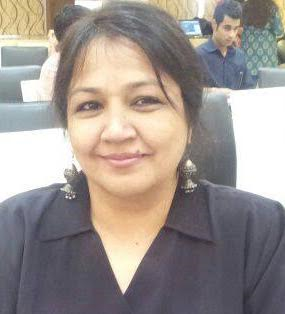What do you do once you have self-edited your novel? Send it to the publisher, right?
Wrong.
As a writer you are too close to your work. Your book is the baby you created and it is a well- known fact that for every mother their baby is the world’s best baby. Mothers (as in creators) are blind to all the faults in their child. This is important too because it ensures that the child gets the best care and opportunity for survival. But if that baby is a spoilt kid, it can be a big pain in the a** when it misbehaves in public spaces.
In the same way, if your book is going to be out in public you need to be sure it is on its best behavior, i.e. it is the best version of the book.
Creators have an inbuilt bias towards their creation (which is necessary too in order for creation to happen) but an objective pair of eyes perusing the work and providing a critique can be the final finessing act that can raise the level of that work of art (the novel, in this case).
In the case of a book, it is the editor whose eyes will search out the weaknesses and the problem areas in the story and thus provide the necessary push-pull- polish.
What do I need? A beta reader or an editor?
Do I need a beta reader or an editor? This is a question that is asked most often in regards to editing.
An editor’s work begins where a beta reader’s ends.
A beta reader will read the book mostly as a reader and not like a trained writer and will provide you an overview feedback. You can also ask for feedback on specific parts of your story, depending on their skills and their interest. But they will not be able to provide you specific suggestions on making your story stronger.
E.g: the beta reader might tell you that your character seems one-dimensional. The editor will be able to take this input further and provide you specific suggestions to remedy it.
Labels are generally limiting. And it is not a hard and fast rule that you need a beta reader and an editor. But if you can get initial feedback on your story from people whose reading and writing skills you trust and admire then you are fortunate. These people would be called your beta readers.
A beta reader who gives you in-depth, insightful feedback is an editor. Every book needs an editor. Just like a doctor cannot (and should not) self-diagnose, in the same way, a writer who is an editor needs another pair of eyes to study their MS and provide editing advice.
Do you know which form of editing your book requires?
Every book requires different editing treatments. Depending on your story and your skill as a reader and writer and of course your grasp of the language you are writing in, you can choose the type of editing required for your MS.
The different types of editing:
1) Developmental Editing
This is the Big Momma of all editing. Developmental editing is the one in which the editor takes a bird’s-eye view (and an eagle eye, too) of your story, checking for elements like character and narrative arcs, setting, holes in your plot, pacing, and tone. A Developmental Editor (DE) will go through your story with a fine-tooth comb and straighten out the chinks of slow pacing, broken story connections and non-adherence to the themes and genre, amongst other issues. Even if most of it is instinctive, DEs do keep a list in the back of their head of the different elements in the story that must be tracked to fulfill their position in the story. Without a doubt, story is king and the DE has to ensure the royal duties are taken care of (okay, the analogy got stretched a bit there).
2) Line-editing
This is more of a sentence-specific editing. Micro-editing, of sorts. But also, it’s about making your prose sing. Is your choice of words the best that it can be? If the line-editor feels it is not, they are going to provide suggestions. They will check that the big-big words you used are right for the context and whether they are the best choice. Does your sentence stand well and is the flow of words smooth – a LE will check those. Repetitions, verbosity and grammar checking also come under the ambit of the Line Editor.
3) Proofreading
Recently I read somewhere that authors are leaving a couple of typos uncorrected in their novels because apparently it thrills the reader to catch them. Am not sure if it has been verified but I wouldn’t advise you to leave typos in your own novel. A good proofreader will ensure your text is free of typos and punctuation glitches. If you are fluent in the language you are writing in you could do your own proofreading. In order to avoid reader bias (filling in words that are missing or overlooking misspelled words because you are so familiar with your novel by now), you could read your novel backwards.
If you are the curious types (all writers are, aren’t they?) then you must have come across the word copy-editing, often used in conjunction with line-editing. This form of editing is different in the sense that it finds usage mostly in the editing of non-fiction.
About the Author
Sonia Rao is the editor of Mumbai Mom (mumbaimom.com). She is also a fiction writer and editor, and an award-winning blogger (https://soniaraowrites.wordpress.com/). Her fiction has appeared and is forthcoming in many prestigious anthologies.
As NaNoWriMo’s Municipal Liaison for all-India and founder of the Wrimo India group, Sonia has motivated thousands of people in India to write a novel every November since 2011. She also expedited and edited the first Wrimo India Anthology, Vengeance – A Sting In Every Tale.
Next: Important things to remember when editing your novel.










.jpg)




0 Comments